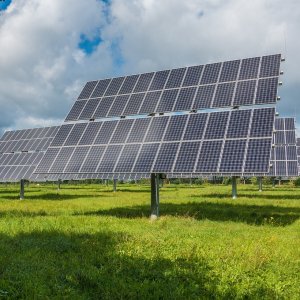Electric Vehicle Infrastructure Must Be Developed Further: Garay

STORY INLINE POST
Q: What role does Mexico play within Power Electronics' global business strategy?
A: The Mexican market has slowed down, as there has been a recession for foreign companies in the renewable energy sector. Issues of regulations and government strategies have somewhat discouraged investment in renewable energy. However, following the 2014 Energy Reform, we installed 1.8GW of renewable energy capacity in almost all the states in the north and center of the country in merely a year and a half. It was an extraordinary challenge and resulted in a significant contribution to the country's electricity production. If we had continued at that rate, we would have reached 10GW of clean power capacity.
Power Electronics has not been massively affected by the measures implemented by the current administration and has remained in Mexico. We know that these market conditions are going to change and that incentives will allow foreign companies to once again develop renewable energy at a large scale. We are also waiting for the development of energy storage to provide our know-how and experience in the country and contribute to much higher energy efficiency.
Q: What were the company’s main achievements in 2022 in Mexico?
In 2022, electromobility was among the most attractive sectors, providing the best results. We began marketing electromobility products that we had not previously sold. Some projects were also developed in the water infrastructure sector that will soon begin operations. We also worked to support the oil industry.
Q: How did you adapt your business strategy to the shift in energy policy away from renewables?
A: We have several lines of business in Mexico. The company’s first industry has to do with electric motors. We have marketed our equipment and services to the energy industry and have also ventured into the oil, gas, mining and infrastructure sectors. In Mexico, we are focusing on decarbonization and creating an energy-efficient structure, so we provide solar power, energy storage and electric vehicle (EV) chargers, as well as various types of industrial equipment. Throughout the country, we implement and maintain operations of the plants that were set up with our equipment. We have 24-hour service coverage, ensuring its correct operation and providing maintenance.
Q: How does your vertical integration give the company's solutions a competitive advantage in the marketplace?
A: It provides a wealth of flexibility and opportunity when it comes to adapting to a client’s needs because Power Electronics provides solutions for everything from design to operation. In addition, our after-sales service has been another differentiating element during our 30-year history, a true key to our success. Where other players might find certain designs too challenging, we tackle the issue. Our vertically-integrated structure allows the company to keep supporting its client long after a project has been delivered.
Q: What challenges have supply chain disruptions represented in the production of inverters and their storage solutions and how have they been solved?
A: It was a challenge for all companies. A collapse in the production of electronic components and maritime transportation affected many companies. Power Electronics has taken organizational and production measures to recover from some of the displacement we had in the production of equipment, though the market is still reeling from the pandemic.
We do possess one major advantage: Although we produce different equipment, we use practically the same components. Therefore, having a considerable amount of stock has allowed us to survive and continue working and delivering to customers.
Q: What sets the company’s solution apart from its competition?
A: Other than the focus on service, a great differentiator is the modularity and maintainability of our equipment. The systems installed can scale up even without buying new equipment. A 60kW EV charger can grow modularly until it reaches 300kW, for example. This enables companies to scale up their business sustainably and cost-effectively. This approach greatly influences the initial investment and decreases maintenance costs, as modular components are easily maintained and, when needed, replaced. Our high power capacity also supports clients, allowing them to reduce their investment in equipment.
Q: How has Mexico’s storage industry developed in recent years?
A: Not many energy storage projects have been developed in Mexico, other than a major storage plant in Baja California. Solar energy has boomed but the same has not happened in energy storage, which has been developing via more discreet projects, and some are still under construction. Nevertheless, the country could look toward innovative solutions. This could boost the market toward the kind of growth achieved in other countries.
It is quite puzzling that the market has not taken off yet, considering how much stability storage could bring to the country’s struggling grid due to the stability it provides by solving the intermittency of renewable power. This makes it a technological necessity. If Mexico does want to adopt storage, it will need to use the knowledge that large companies have in store.
Q: What would it take for more companies to want to come to Mexico and develop this industry?
A: What causes companies to enter an empty market are almost always incentives created by governments. Stable, clear regulation is another key factor. If the government can provide both, it will create such a market.
Q: How can Power Electronics help provide the necessary infrastructure to promote the development of electromobility in the country?
A: The company has already made proposals and developed various projects. We are gearing up to carry out projects along highways to start creating much-needed EV infrastructure. Although, for there to be a boom, some supporting regulation must also be established in the country, as has been done in the US, Europe and Asia. EV infrastructure is growing steadily, as some companies are installing more than 500 chargers per year here in Mexico. Car manufacturers are also driving the electromobility market forward. The key is in the incentives: a series of programs that tempt people to take the risk of buying an electric car even if it does not cost less in terms of the base price. Certainty in knowing users can charge their cars is also essential. We are working with some companies that provide EV infrastructure in the country and are working with them to promote such public infrastructure.
Power Electronics is a global leader in the production and installation of variable speed drives, electronic soft starters, solar inverters, energy storage and recharge units.








 By Perla Velasco | Journalist & Industry Analyst -
Tue, 11/22/2022 - 11:38
By Perla Velasco | Journalist & Industry Analyst -
Tue, 11/22/2022 - 11:38















